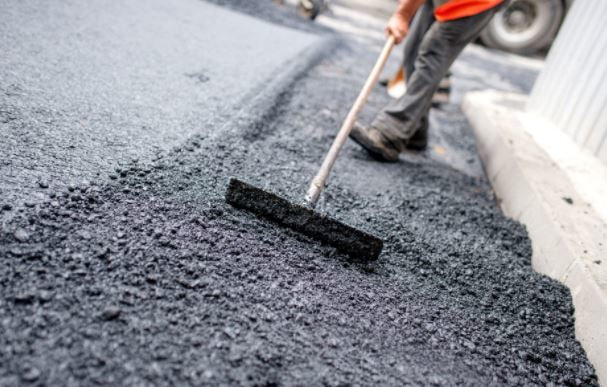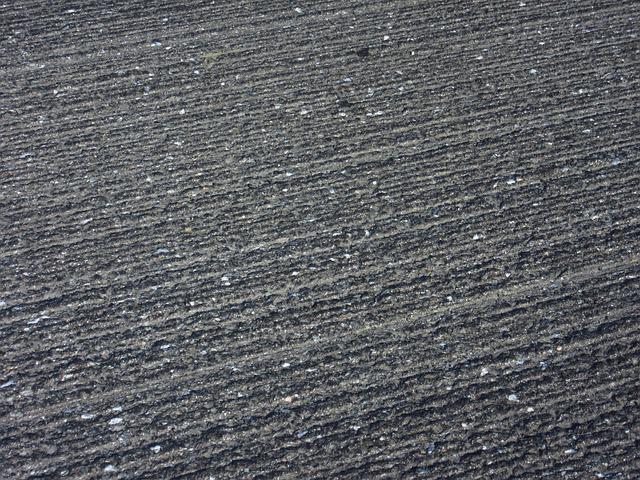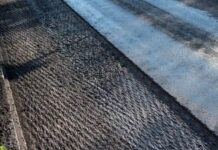DIY Guide to Millings Driveway Installation: Step-by-Step Instructions for the Perfect Finish
A millings driveway offers an eco-friendly and cost-effective way to pave your driveway, providing a durable surface using recycled asphalt material. Millings, which are the remnants of old asphalt surfaces that have been ground up, are becoming a popular alternative for driveway installations due to their affordability, sustainability, and easy maintenance. In this comprehensive DIY guide, we’ll walk you through the entire process of installing a millings driveway step-by-step, ensuring that you achieve a smooth and long-lasting finish.
If you need any additional help or professional advice, Commonwealth Paving, located at 136 Outerloop, Louisville, Kentucky 40214, is ready to assist. Call us today at +1 502 459 7283 to speak with one of our experts.
What Are Asphalt Millings?
Asphalt millings are the byproduct of recycling old asphalt roads and pavements. When asphalt surfaces are removed, they are crushed into small, reusable pieces, which can be used to create a new driveway. Millings provide an economical alternative to traditional asphalt, gravel, or concrete driveways, offering a similar look and feel while being more eco-friendly.
One of the biggest advantages of using millings for your driveway is that they harden over time, creating a compact, weather-resistant surface. Unlike fresh asphalt, which requires professional installation and time to cure, millings driveways can be done by homeowners without specialized equipment.
Benefits of Installing a Millings Driveway
Before diving into the installation process, it’s important to understand the advantages of choosing a millings driveway:
- Cost-Effective: Using recycled materials means reduced costs compared to fresh asphalt or other paving materials.
- Environmentally Friendly: Asphalt millings are made from recycled materials, reducing waste and the need for new raw materials.
- Low Maintenance: Once installed, millings require minimal upkeep and are highly resistant to water damage and weathering.
- Durability: Over time, the driveway will harden and compact, providing a strong surface capable of withstanding heavy loads.
- Rustic Aesthetic: Millings give a rustic, gravel-like appearance that many homeowners find appealing for a driveway.
Now that you’re familiar with the benefits of a millings driveway, let’s move on to the installation process.
Tools and Materials You Will Need
Before you start installing your millings driveway, make sure you have the following tools and materials on hand:
- Asphalt millings
- Heavy-duty rake
- Shovel
- Plate compactor (or a heavy vehicle like a truck)
- Landscape fabric (optional for weed prevention)
- String or stakes (for marking the driveway layout)
- Measuring tape
- Wheelbarrow (for transporting millings)
- Water hose or sprayer
With these tools and materials ready, you’re set to begin your project.

Step-by-Step Guide to Installing a Millings Driveway
Step 1: Plan and Prepare Your Driveway Layout
The first step in installing a millings driveway is to carefully plan your layout. Determine the size, shape, and orientation of your driveway. Use string, stakes, and measuring tape to mark the edges of the driveway, ensuring it is straight and uniform.
Consider any slopes or drainage requirements when planning the layout. Proper drainage is essential to prevent water pooling, which can lead to erosion or damage to the millings.
Pro Tip: For steep driveways or areas prone to heavy rain, consider adding a slight slope or crown in the center of the driveway to direct water away from the surface.
Step 2: Prepare the Base
Once you’ve marked the layout of your millings driveway, it’s time to prepare the base. This is one of the most critical steps to ensure the durability of your driveway.
- Clear the Area: Remove any debris, vegetation, or existing gravel from the surface of the driveway. Use a shovel or heavy-duty rake to ensure the ground is clean and smooth.
- Excavate if Necessary: If your driveway has existing material like old asphalt or gravel, you may need to excavate a few inches down to create space for the millings. This will also help to level out the surface.
- Install Landscape Fabric (Optional): To prevent weeds from growing through your driveway, you can install a layer of landscape fabric before adding the millings. This is particularly useful in areas with heavy weed growth.
Pro Tip: Ensure that your base is level and well-compacted. A poorly prepared base can lead to uneven settling or potholes down the road.
Step 3: Spread the Asphalt Millings
With your base prepared, it’s time to start spreading the millings. Here’s how:
- Transport the Millings: Use a wheelbarrow to transport the asphalt millings to the driveway area. Begin by dumping them in small piles along the length of the driveway.
- Spread Evenly: Using a heavy-duty rake or shovel, spread the millings evenly across the surface, creating a uniform layer. The recommended thickness for a millings driveway is about 3-4 inches.
- Rake Smooth: As you spread the millings, rake them to ensure a smooth and even surface. Be sure to pay extra attention to the edges, making sure they are well-defined and packed.
Pro Tip: Try to spread the millings on a dry day to avoid any issues with compacting. Wet millings can be more difficult to work with.
Step 4: Compact the Millings
After spreading the millings evenly across your driveway, the next step is to compact the material. This step is crucial for creating a durable, hard surface.
- Use a Plate Compactor: If you have access to a plate compactor, use it to compact the millings. Start from one end of the driveway and work your way to the other, ensuring even compaction. The more compact the millings, the more durable and weather-resistant your driveway will be.
- Alternative: Use a Heavy Vehicle: If you don’t have access to a plate compactor, you can use a heavy vehicle like a truck to drive over the surface multiple times. This will help pack the millings into the base.
- Wet the Surface: Lightly spray the surface of the millings with water using a hose or sprayer. This will help to activate the binding agents in the asphalt millings and create a more solid surface. However, avoid over-saturating the surface, as too much water can prevent proper compaction.
Pro Tip: Compacting in multiple passes will ensure a tighter, more durable driveway. Pay extra attention to the edges and any high-traffic areas, as these are prone to wear.
Step 5: Add Finishing Touches
Once the millings have been compacted, you’re almost done with your driveway installation. However, a few finishing touches can enhance the durability and aesthetic of your driveway:
- Edge the Driveway: Consider edging your driveway with materials like stone, brick, or timber. This will help define the edges and prevent the millings from shifting over time.
- Re-Compact if Needed: After the first compaction, check for any uneven areas or low spots. If necessary, add more millings to these areas and re-compact them.
- Let It Settle: After installation, give the millings a few days to settle and harden before driving on them. This will help create a stronger surface.

Step 6: Maintain Your Millings Driveway
Maintaining a millings driveway is relatively simple, but proper care will extend its lifespan. Here are a few maintenance tips:
- Monitor for Potholes: Over time, high-traffic areas or weak spots may develop potholes. If this happens, simply add more millings to the affected area and re-compact it.
- Re-Compact Regularly: Every few years, it’s a good idea to go over the driveway with a compactor or drive a heavy vehicle over it to ensure it stays tightly packed.
- Weed Control: Keep an eye out for any weeds that may try to grow through the millings. Use a weed killer or manually remove weeds as needed.
By following these maintenance steps, your millings driveway can last for years without requiring major repairs.
Additional Tips for a Perfect Millings Driveway
Here are a few extra tips to help ensure your millings driveway installation is flawless:
- Install during warm weather: Installing millings in warm weather helps them bind together better, creating a more solid surface. Avoid installing during cold, wet months.
- Consider a Sealer: Some homeowners choose to apply a sealer to the surface of their millings driveway for added protection against moisture and wear.
- Avoid Excessive Watering: While it’s important to moisten the millings during installation, too much water can prevent proper compaction. Lightly misting the surface is sufficient.
Why Choose Commonwealth Paving for Your Millings Driveway Installation?
While installing a millings driveway can be a rewarding DIY project, sometimes professional assistance is necessary to ensure the best results. At Commonwealth Paving, we specialize in driveway installations and repairs, including millings driveways. Located at 136 Outerloop, Louisville, Kentucky 40214, our team has the expertise and tools needed to ensure a smooth and durable finish.
If you have any questions or need assistance with your millings driveway installation, don’t hesitate to contact us at +1 502 459 7283. Whether you need professional installation or expert advice, we are here to help!
Installing a millings driveway is a cost-effective and environmentally friendly way to create a durable, low-maintenance surface for your home. By following the steps outlined in this guide, you can achieve a smooth and long-lasting millings driveway that enhances your property’s value and functionality. Remember, for additional guidance or professional installation services, Commonwealth Paving is just a call away at +1 502 459 7283.
Enjoy your new millings driveway, and drive with confidence knowing you’ve made an eco-conscious, budget-friendly decision!
Why Millings Driveways Are the Smart Choice for Your Property
Choosing the right material for your driveway is one of the most important decisions you’ll make for your property. With so many options available, from gravel to concrete to asphalt, homeowners are often left wondering which is the best choice for their needs. One option that is gaining popularity for its affordability, durability, and eco-friendliness is the millings driveway. Millings, which are essentially recycled asphalt, offer a sustainable alternative to traditional driveway materials.
In this blog, we’ll explore why millings driveways are the smart choice for your property and how they can enhance the overall functionality and appearance of your driveway. If you’re interested in installing a millings driveway or need further advice, contact Commonwealth Paving, located at 136 Outerloop, Louisville, Kentucky 40214. Give us a call at +1 502 459 7283 to speak with our experts.
What Is a Millings Driveway?
A millings driveway is made from recycled asphalt, also known as asphalt millings. When old asphalt surfaces, such as roads and parking lots, are removed, they are crushed into small pieces to be reused. This material is then compacted to form a new driveway surface. Millings driveways offer a rustic, natural look that closely resembles traditional gravel or asphalt, but with added benefits such as cost savings, sustainability, and durability.
Millings bind together over time, forming a solid surface that requires little to no maintenance. Unlike fresh asphalt, which must be professionally installed and requires curing time, millings can be compacted and driven on immediately after installation.
The Benefits of Choosing a Millings Driveway
There are several reasons why a millings driveway is a smart choice for homeowners looking to install or upgrade their driveway. Below, we discuss the key benefits of millings driveways and how they can enhance the value and usability of your property.
1. Cost-Effective
One of the most significant advantages of choosing a millings driveway is the cost savings. Since millings are made from recycled materials, they are considerably cheaper than traditional asphalt or concrete. For homeowners on a budget, millings offer a way to achieve a durable, attractive driveway without breaking the bank.
Additionally, the installation process for a millings driveway is much less labor-intensive, which reduces the overall cost. Because the material is already processed and broken down, it can be installed without the need for specialized equipment or professional asphalt services, making it a perfect option for DIY enthusiasts.
2. Environmentally Friendly
Sustainability is becoming an increasingly important factor in home improvement projects. By opting for a millings driveway, you are making an environmentally conscious decision. Asphalt millings are created from recycled asphalt, reducing the demand for new raw materials. Instead of old asphalt being sent to landfills, it is reused and given a new purpose, minimizing waste.
Moreover, millings driveways reduce the need for additional materials like gravel, which requires mining and transportation. By choosing a millings driveway, you are helping to reduce your carbon footprint and contributing to a more sustainable future.
3. Durability and Longevity
Millings driveways are incredibly durable and can withstand heavy traffic and harsh weather conditions. Unlike traditional gravel driveways, which can become loose and require regular re-grading, millings driveways compact and harden over time, creating a more solid and stable surface. This makes them ideal for areas with fluctuating weather conditions, including rain, snow, and heat.
When properly installed and compacted, a millings driveway can last as long as traditional asphalt. The compacted material prevents erosion, reduces dust, and holds up against heavy loads, making it suitable for both residential and commercial properties.
4. Low Maintenance
One of the main concerns homeowners have when choosing a driveway material is how much maintenance it will require over time. A millings driveway is virtually maintenance-free, making it an attractive option for busy homeowners who don’t want to spend a lot of time or money on upkeep.
Once installed, millings driveways require little attention. The material compacts naturally over time, creating a durable surface that doesn’t need regular repairs. Any small cracks or imperfections can be easily patched by adding more millings and compacting them into the surface. Additionally, millings driveways are resistant to weeds, meaning you won’t have to worry about unwanted plants growing through your driveway.
5. Quick Installation
If you’re looking to install a new driveway in a hurry, a millings driveway is a great option. Unlike asphalt or concrete driveways, which require curing and drying time, millings driveways can be installed and used immediately. The material is easy to spread and compact, making the installation process quick and efficient.
For those who prefer a DIY project, millings can be installed without the need for professional assistance. All you need are the millings material, basic landscaping tools, and a plate compactor to create a smooth and level surface. If you do need help with the installation, the team at Commonwealth Paving is available to provide professional services. Contact us at +1 502 459 7283 to schedule an appointment.

6. Rustic Aesthetic
Many homeowners are drawn to the rustic, natural look that a millings driveway offers. The appearance of millings is similar to gravel, providing a more casual and earthy aesthetic that blends well with rural or natural landscapes. If you’re looking to achieve a more rustic or country-style driveway, millings can provide that look while still offering the benefits of durability and low maintenance.
Additionally, the natural color of millings can vary depending on the source of the recycled asphalt, which can add character and uniqueness to your driveway. Some millings have darker tones, while others may feature lighter shades, giving you the flexibility to choose a color that complements your property.
7. Weather Resistance
One of the standout features of a millings driveway is its ability to withstand a wide range of weather conditions. Asphalt millings naturally form a tight, compact surface that is resistant to rain, snow, and heat. Unlike loose gravel, which can be washed away during heavy rain, millings driveways remain stable and intact, reducing the risk of erosion.
During the winter months, millings driveways are also less susceptible to freeze-thaw cycles. The compacted surface prevents water from seeping into cracks and freezing, which can lead to potholes and other damage. This weather resistance makes millings driveways ideal for regions with extreme seasonal changes.
8. Customizable and Flexible
Another reason why millings driveways are a smart choice is their flexibility and customization options. Unlike concrete or asphalt, which require professional installation and specific curing times, millings can be installed to fit your exact needs and preferences. You can easily create a driveway that fits the shape and size of your property, without the need for costly equipment or additional materials.
Millings can also be layered to create a thicker, more durable surface. If you want a stronger driveway, simply add more millings during the installation process and compact them to achieve the desired thickness. This flexibility allows homeowners to create a driveway that meets their specific requirements, whether for a residential property, farm, or commercial site.
9. Recyclable and Reusable
One of the key advantages of a millings driveway is that it is not only made from recycled materials but is also recyclable itself. If you decide to upgrade or replace your driveway in the future, the millings can be removed, reprocessed, and reused for another project. This recyclability adds to the eco-friendly nature of millings and makes it a smart long-term investment for property owners.
Additionally, because millings are made from recycled asphalt, they retain some of the original asphalt’s properties, such as flexibility and durability. This makes them an ideal material for driveways, as they provide the strength of asphalt without the need for new raw materials.
Common Uses for Millings Driveways
While millings driveways are most commonly used for residential properties, they are also a popular choice for a variety of other applications:
- Rural and Agricultural Properties: Millings are an ideal choice for farm roads, barn access points, and parking areas on rural properties. The durability and rustic aesthetic of millings blend well with the natural surroundings.
- Commercial Properties: Businesses that need cost-effective and low-maintenance parking areas can benefit from installing millings driveways. The material is strong enough to withstand heavy vehicle traffic and provides an affordable alternative to traditional asphalt.
- Recreational Areas: Millings are often used for pathways, trails, and parking lots in parks, campsites, and recreational facilities. The material is easy to install and maintain, making it a great choice for high-traffic areas.
If you’re considering a millings driveway for any of these applications, Commonwealth Paving can provide expert advice and installation services. We are located at 136 Outerloop, Louisville, Kentucky 40214, and are available for consultations at +1 502 459 7283.
How to Install a Millings Driveway
Installing a millings driveway is a straightforward process that can be completed by homeowners or with the help of professionals. Here’s a brief overview of the installation steps:
- Prepare the Base: Clear the area where the driveway will be installed, removing any debris, vegetation, or old material. The base should be level and compact to provide a stable foundation.
- Spread the Millings: Use a wheelbarrow or truck to distribute the millings evenly across the driveway area. Aim for a thickness of about 3-4 inches.
- Compact the Millings: Use a plate compactor or heavy vehicle to compact the millings. This step is essential for creating a solid and durable surface.
- Add Water: Lightly spray the driveway with water to help bind the millings together. Continue compacting until the surface is smooth and level.
- Optional Sealant: While not necessary, some homeowners choose to apply a sealant to their millings driveway to enhance its appearance and durability.
For professional installation services, contact Commonwealth Paving at +1 502 459 7283. We have the experience and expertise to ensure your millings driveway is installed to the highest standards.
Conclusion: Choose a Millings Driveway for Your Property
A millings driveway is an eco-friendly, cost-effective, and durable choice for homeowners and businesses alike. With its low maintenance requirements, resistance to weather, and attractive appearance, millings driveways offer a practical solution for a wide range of applications.
If you’re ready to install a millings driveway or want more information about the benefits of millings, contact Commonwealth Paving. Our team is located at 136 Outerloop, Louisville, Kentucky 40214, and can be reached at +1 502 459 7283. We look forward to helping you create the perfect driveway for your property!
Address
Commonwealth Paving, 136 Outerloop, Louisville, Kentucky 40214
Phone: 502-459-7283, Fax: 502-456-2678
Opening Hours
| Monday | 9:00 AM – 5:00 PM |
| Tuesday | 9:00 AM – 5:00 PM |
| Wednesday | 9:00 AM – 5:00 PM |
| Thursday | 9:00 AM – 5:00 PM |
| Friday | 9:00 AM – 5:00 PM |
| Saturday | Closed |
| Sunday | Closed |






